Top 5 Industries Using Reverse Osmosis System
In last few years, the use of Reverse Osmosis or RO water purification system gained more popularity. Rather its use in domestic uses, commercial and industrial applications made it more popular. In fact, it is the most affordable and simplest water treatment alternative for many industries. The modern technologies or developments are being used as add-ons to this system and improving the productivity.
Best 5 Industrial Uses of Reverse Osmosis Water Filters:
Power Generation – The Reverse Osmosis system performs exceptionally in the power plants where boiler feed water treatment is essential. Higher volume of feed water processed faster with this technique.
Pharmaceuticals – The pharmaceutical companies all over the world are now depending upon the RO technology. This handy method is able to supply the water with all basic attributes.
Food and Beverage – Since its innovation, Reverse Osmosis system is being used in this industry. It purifies the water purely and makes it hygienic properly.
Semiconductor – This industry requires ultrapure water for its advanced use. The manufacturers use RO for cost and quality.
Metal Finishing – The non-organic and chemical free water source processed in the metal finishing operations. The use of special kind of chemicals in the RO processed permeate water is essential.
This concept is being adopted by more and more industries as the cost efficient water treatment method for makeup and boiler feed water. Reverse Osmosis water filters use in zero-liquid discharge like industrial applications is continuously increasing. It proficiently enhances the operating efficiency and boost energy output evidently.
Sea Water Desalination Causes No Loss of Good Minerals
The myths or misconceptions about the water purifiers have no limits. Some people have to debunk the myth that tells softened water take out useful minerals and nutrients. In fact, this information is completely wrong as the seawater or saltwater purified for making it useful. So, water softening is not the concept of removing essential minerals and nutrients that are needed by our bodies. Distinguishing between the hard and soft water will demystify the real thing.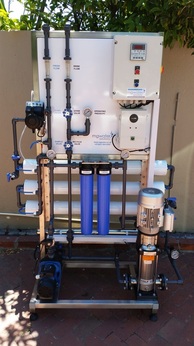
The Functions of Water Softener:
The raw or hard water may not appropriate for humans or any living beings. In fact, this type of water carries many harmful elements that scatter many health issues. Mainly the calcium, magnesium and other chemicals in predefines manner in the hard water does not support the body growth. Softening these elements through advanced water treatments makes the thing better.
The sea water desalination is a great example of water softening. Be clear that softened water does not add any harmful chemicals in the water. Through the water softening process, magnesium and calcium are exchange for sodium. In reality, the water softener does not mess with the sodium level in the water significantly.
The hard water has the calcium in an inorganic state which does not contribute anything to us. The sea water desalination processed water removes only the indigestive magnesium particles from the water. So, there is no loss is considered through the water softening process. Soft water is more positive to our body than the unprocessed or hard water.
Borehole and bottling water purification methods enhances quality of clear water
Water is a natural phenomenon which has several uses in our daily lives. This natural resource cannot be neglected even for a second at once. But, there is a requirement to filter the resource to make it usable. The presence of bacteria and viruses could lead to water-borne ailments. Hence, there is an utmost need to filter out the water from all harmful effluents for clear drinking water purposes.
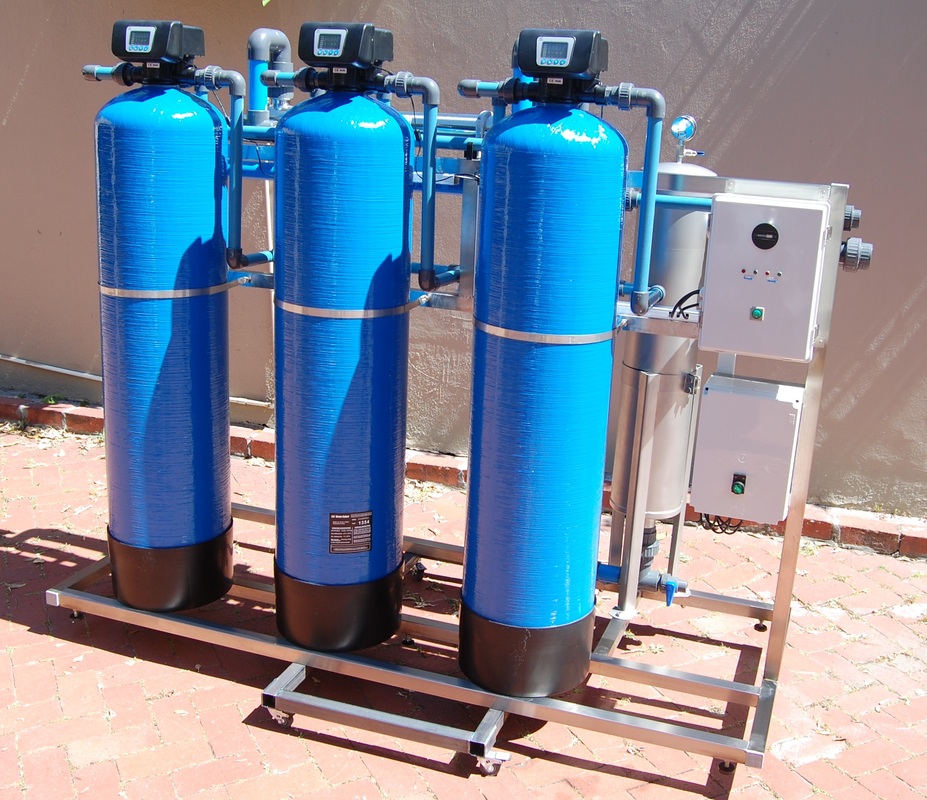
Borehole water purification is one of the effective methods to get clean water. The borehole water could have the presence of dissolved solids like calcium, magnesium, etc. There could be other ions like chloride and bicarbonates as well. Hence, it becomes evident to filter out the impure matter making the water ready for consumption.
The water can be stored in a holding tank for borehole water purification and then the procedure of coagulation and flocculation could start by water treatment with chemicals. As there are multiple methods, the filtration process could be chosen accordingly. This would help the chemical treated water to further filter out the bacteria, cyst and other detrimental elements removed.
In terms of potable water, bottling water purification method has done much better. In this method, water passes through and efficient water treatment processes in the plant while conserving the mildness of water. The bottling water purification follows standard filtration procedures being carried out to produce hygienic and pure drinking water.
The above methods follow standard filtering methods to wipe out contaminants from the water and make it drinkable.
Desalinized water from reverse osmosis system serves multi-purpose utilization
Water purification holds the reason to good health. Clean drinking water hydrates the body and keeps it frees it from toxins. In previous times, water borne diseases affected large masses. The filtration of the water was the utmost requirement to get rid of the ailments. RO purifiers have proved to be great pioneering technology generating clean water.
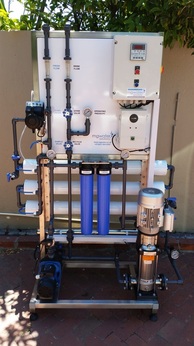
The Reverse Osmosis system allows the solvent to pass through the semi-permeable membrane on application of pressure and helps in removal of the impure effluents present in the water. Reverse osmosis water filters are the modern age purifiers that free that water from biological contaminants, solids and sea-water salts. The river water mixes with sediments while flowing across. The deposits may contain ammonium, arsenic, cadmium, copper, fluorides, lead, etc. Reverse Osmosis System are not just used for drinking water but also used in medical, pharmacological as well as industrial purposes.
Setting up of the reverse osmosis water filters can be done by the manufacturer or seller. They will set up the filters and give the basic instructions for their usage. Most of the sellers offer warranty period for the water purifiers and replace them easily if any defect is founded. The service providers offer prompt services regarding any problems of usage of water filters.
Pure drinking water is a necessity in today’s times as the water coming in through municipality is not fit for direct consumption. The effective purification is evident for clean water. After all health is wealth, then why to neglect this vital issue.
Different water softeners and methods for desalination of water
Over 97.5% of water in the world is salt-water. Sea Water Desalination is very essential for pure drinking water purposes and irrigation processes. The process of desalination removes the salts and other minerals present in the water content and make it usable. It is a much required step for agricultural production.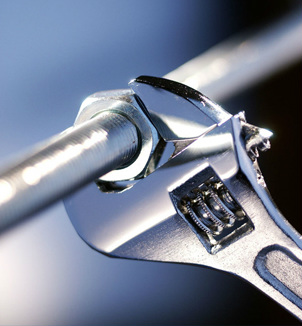
There are various methods to achieve Sea water desalination. Some of the methods are discussed below:
Water Softener: The process of removing hardness from the water is called softening. The hardness is due to the presence of calcium and magnesium in the water. The water softener helps in maintaining the mild properties of water. The hard water can create huge problems like clogging of the water flow pipes, effecting laundry systems, household machineries like scaling of geysers and pipes, etc.
The water softener helps remove the positive charged ions. The specific ion exchange is done by the removal of calcium and magnesium ions and replacement by the sodium ions.
Reverse Osmosis: The sea water desalination can also be done by this method. The salt water or hard water is passed through the semi-permeable membrane with the application of osmotic pressure. The result is all the concentration of dirt, salts and dissolved solids are removed from the water and clear water is obtained.
EDR: Also known as Electro-dialysis Reversal. It is another method of sea water desalination. Electric current drifts through the dissolved ions in the water, through electro-dialysis stack containing anionic and cationic exchange membranes.
The above methods help in achieving water desalination.
Custom container water filtration systems lead over built-in room plants
With the rising levels of pollution, water flowing down the rivers and seas get accumulated with serious contaminants. To improve the water quality the need of water filtration systems are very apparent.
The container water purification does the critical task of water filtration, softening and demineralization very easily. The water treatment manufacturers have successfully designed container water purification with the facilities of dosing, mixed bed ion exchange, and demineralization through reverse osmosis procedure. It uses the reverse osmosis procedure as the core process for the desalination of water.
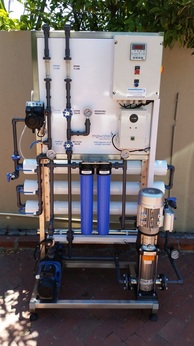
The custom standard sizes available for the ISO containers are of 20ft, 40ft and 40ft HQ. They are equipped with water purification technology set up. These are plug and play units used for remote locations, emergency responses, as well as oil and ship platforms.
Some features equipped with the container water purification systems:
Single or double access doors: The customers can choose from number of access door in the containers.
Insulation and ACs: The water filtration systems can be equipped with Air condition system and insulation too.
Power generation facilities: The system can be equipped with power generators.
Customers can choose their branding specifications along with colors for the container system. The advantage of these container water purification systems is they are quick in installation, mobility and easy transportations, and has very limited civil work except the container specifications. The easy mobility of these containers makes it more useful than the conventional built-in plants rooms.